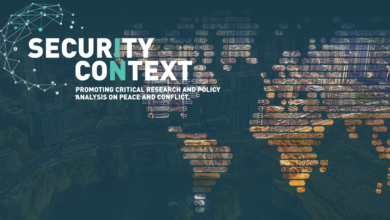The Syrian Center for Policy Research (SCPR) took part with 12 Syrian civil society platforms in organizing the convening: “Towards More Principled International Support to Syria” that was held in March 2022.The convening featured 40 Syrian and international panellists, and was attended by 200 participants connecting from 47 countries across the globe. Panellists and attendees included Syrian experts from all regions of Syria as well as diaspora; senior diplomats; and leading international experts.
The event called for the international community to rethink its approach to providing support to Syria, to ensure an effective and sustainable response that meets the minimum needs of the Syrian people and supports local communities to lead their own recovery.
Convening Conclusions and Recommendations :
- International aid to Syria has supported Syrians on multiple levels for the past decade. Nevertheless, it has contributed to creating dangerous patterns on the ground. It is time to rethink international aid to Syria, move away from crisis mitigation mode, and reflect on how to empower the Syrian population to take over the process of shaping their future.
- There is a tendency to think of recovery on a central level, and through a framework of resilience, when discussing the future of Syria. In line with this, the concept of ‘early recovery’ has been largely politicised and co-opted by problematic and compromised actors, including the Syrian government, to promote a narrative and a reality of normalisation. A shift is needed towards a concept of ‘integrated local development’ that transcends conflict foundations and enhances opportunities for peace. This requires deliberately adapting the mechanisms of international assistance to create conditions that would facilitate and protect a civic space that can catalyse genuine development processes, ones that are truly sustainable.
International donors’ interventions need to be guided by a human right- based and sustainable peace conditionality. Syrians can and must play a central role in supporting the international community to achieve more integrated and consistent policies of international assistance in line with this conditionality. This is to avoid empowering warlords and de facto authorities, contributing to more human rights violations, consolidating the war economy, entrenching the divisions between different regions in Syria, planting seeds for new conflicts, or supporting certain segments of the Syrian population at the expense of others.
Efforts towards achieving integrated local development processes can only be fruitful if done in accordance with the parameters of a human rights-based and sustainable peace conditionality. If such a conditionality is infeasible, efforts must be directed towards making it feasible. Otherwise, more damage can be expected, including by contributing to human rights violations, entrenching existing divisions, and legitimising calls for normalisation by the Syrian government and other de facto powers.
Supporting integrated local development processes in Syria requires overcoming the vague concept of localisation and embracing the specific goal of working on a local level in a principled, structural, and sustainable way. This implies acknowledging local civil actors as a societal force that can structurally shape the design, delivery, and monitoring of international assistance. Syrian civic actors can do much more than simply act as implementing agencies, or help with procurement. Working on the local level in a principled way further implies operating across sectors and across regions and geographic localities. This is crucial to ensure that local development processes would not contribute to entrenching geopolitical divisions in Syria or compromising local, sub-national or national interests of the country today or in the future.
Supporting integrated local development processes in Syria necessitates working with Syrian intermediaries that are trusted not only by donors for their technical capabilities, but also by local communities and civic actors for their accountability. Intermediaries are not simply sub-granting bodies. Rather, they play a fundamental role in securing a dynamic and efficient interface between donors and the local level, and in preserving national, sub-national and cross- regional interests.
Supporting integrated local development processes in Syria also entails working with uncompromised Syrian channels in the civic space in every part of the international assistance process. Uncompromised channels are accountable to the communities they serve and have the capacity to navigate technical and security challenges posed by compromised actors.
There is a need to create an environment that would protect and nourish uncompromised channels to build a civic space that is less vulnerable to interference and manipulation by de facto powers, more immune to aid diversion, and less likely to entrench divisions, conflict economies, or conflict traps.
There is not a one size fits all, ready-made or fast solution to working at the local level in a principled way. Rather, it is a process. The goal should be to create an enabling environment for the uncompromised civic space to exist, grow, and eventually own the process.
- Effectuating integrated local development processes in Syria can allow for an authentic national ownership by the Syrian people of the country’s future peace and development as opposed to a national ownership dictated by the regime (or other de facto powers).
- There is an urgent need for a conducive financial environment in Syria that would allow legitimate financial transfers, create payment channels to protect aid, and facilitate a productive role for the principled private sector in the transition from an aid-based economy to sustainable local economies.
- The role of the principled private sector is essential in facilitating integrated local development processes. There is a need to empower trusted local private sector actors and create local civil society-private sector dynamics and partnerships that could facilitate the establishment of sustainable local economies and protect them from the hegemony of compromised private sector actors.
- Monitoring of international aid needs to be reconceived as a framework of accountability both to Syrian communities and to the taxpayers of international donor states. This implies activating meaningful upstream and downstream monitoring mechanisms to hold donors accountable, along with their channels for aid delivery in the design and implementation of aid programmes, in accordance with human rights and the country’s prospects for sustainable peace and development.
- This vision for a more principled international assistance to Syria requires the political will and collective action of donors to embrace new approaches, and an aid architecture that shifts the response from one supporting the Syrian population’s adaptation to the conflict to one addressing root causes of the conflict and the seeds of potential conflict traps. Donors are urged to turn their attention to developing together, and in coordination, such new approaches as are suggested here. It will entail bridging the silos of different types of aid and rethinking the linkages between humanitarian, development, and peacebuilding aid in a structural way that allows the Syrian civic space to build efficient governance structures, sustainable local economies, and hence integrated local development.
The Convening Coalition
Baytna • Hamzet Wasl • IFIT Syria Resource Group (SRG) • IMPACT • Shaml Coalition for Syrian CSOs • Syrian Centre for Policy Research (SCPR) • Syrian International Business Association (SIBA) • Syrian Legal Development Programme (SLDP) • The Syrian British Council (SBC) • Union Of Medical Care And Relief Organizations (UOSSM) • We Exist • Workgroup for Building Free Syria






